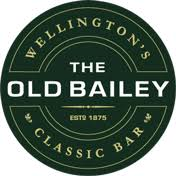Lang, Lieutenant - General Sir Derek Boileau KCB DSO MC

Generation: 1
1. Lang, Lieutenant - General Sir Derek Boileau KCB DSO MC was born on 7 Oct 1913 in Guildford, , Surrey, England; died on 7 Apr 2001 in Kirknewton, , Midlothian, Scotland; was buried in Canongate, Edinburgh, Midlothian, Scotland. Other Events and Attributes:
- _UID: 18479B173B28447E934F152A7E1FDF05D809
- Obituary: 13 Apr 2001; The Telegrah
Notes:
Portrait in the National Portrait Gallery
http://www.npg.org.uk/collections/search/person/mp136934/sir-derek-boileau-lang
Wikipedia Link: http://en.wikipedia.org/wiki/Derek_Lang
Obituary:
Source: http://www.telegraph.co.uk/news/obituaries/1316003/Lt-Gen-Sir-Derek-Lang.html
LIEUTENANT-GENERAL SIR DEREK LANG, who has died aged 87, was awarded the Military Cross in 1941 for his daring escape from German captivity, and in 1944 was awarded the DSO for gallantry and outstanding service while commanding 5th Battalion the Queen's Own Cameron Highlanders.
In 1940, Lang went to France as adjutant of the 4th Camerons, which formed part of the 51st Highland Division. This division, having been detached from the main body of the BEF, found itself, after Dunkirk, defending positions south of the Somme.
Outnumbered, and menaced from the south by the 5th and 7th Panzer Divisions, the division withdrew to St Valery-en-Caux where, on June 12, after heroic resistance, they were surrounded and forced to surrender. Among the prisoners was Lang, who had been manning a Lewis gun on one of the last boats to leave port when it was ripped open and sunk by German artillery fire from the clifftops. Lang spent a week in hospital before joining a long march of prisoners-of-war into Germany. Seizing an opportunity to break away from the column he made his way to the coast, but was recaptured a week later and taken to a prison camp in Belgium.
From here he escaped a second time and, making his way across France, reached Marseilles, where he stowed away in a ship bound for Beirut, in Vichy-controlled Syria. Here he contacted an Englishman who helped him to avoid the attentions of the French police and make his way to Matulla on the Palestine border, where there was an outpost of the Somerset Yeomanry. For this exploit he was awarded the Military Cross.
By July 1944, Lang was back in France commanding the Camerons' 5th Battalion (having being offered in error the command of a battalion of the Cameronians). The 5th Battalion, part of the reformed 51st Highland Division, had suffered heavily in the fighting in the Normandy bridgehead. Lang was their fifth commanding officer in six weeks and they had suffered 25 per cent casualties in the previous three.
Lang's combination of personal courage, perseverance, and great tactical skill proved inspirational. After leading his battalion during the final phase of the Caen-Falaise battle, he was delighted to be received by the mayor of St Valery, when the Highland Division liberated that town in September.
Lang continued to command the 5th battalion in the advance to the Maas during November and December of 1944. Driven by a strong sense of duty, he always made a point of visiting his forward companies, however late the hour and however bad the weather. Despite this, his personal style was far from austere - he once delayed a battalion attack to celebrate, with captured champagne, his daughter's birth, of which he had just been informed.
Acting on his own initiative, Lang managed to infiltrate men across the Zig canal to seize and hold a bridgehead. This speeded the whole Army's advance by four days, and he was awarded the DSO.
Derek Boileau Lang was born at Guildford on October 7 1913, and educated at Wellington and Sandhurst. A keen sportsman, he represented Sandhurst at rugby, tennis, golf and rackets - but his first love was polo, which he played with great skill.
Commissioned into the Queen's Own Cameron Highlanders in 1934, he served with the 1st battalion in Sudan before joining the 2nd battalion in Palestine during the Arab rebellion. In February 1938 he was posted, as adjutant, to the 4th battalion, with which he served until his capture in France in 1940.
After his escape from Belgium and the journey to Palestine, he joined the 2nd battalion, with which he served as adjutant in the Eritrean campaign, including the battle of Keren, which involved heavy mountain fighting against well-led and determined Italian troops. In August 1941 he was posted to the Middle East Battle School, from which he went, as Chief Instructor, to the School of Infantry at Barnard Castle.
In July 1944 he took over command of the 5th battalion, which he commanded until the end of the war in Europe, and with which he won his DSO and was three times mentioned in dispatches.
At the end of the war he took over the BAOR School of Infantry at Sennelager, which he ran until 1947, before joining the Staff College, Camberley. There followed staff appointments in Australia, the War Office, the School of Infantry and the Canadian National Defence College. In 1958, he rejoined the 51st Highland Division as Commander of the 153rd Highland Brigade.
There followed a period as Chief of Staff at Headquarters, Scottish Command, after which Lang returned to the Highland Division, in 1962, as its Commander.
After a spell at the MOD as director of Military Training, he returned to Scotland in 1966, as GOC Scottish Command.
Possessed of a quick-fire and inventive mind, Lang was affectionately nicknamed "the Unguided Missile" by his staff. His hand on a shoulder, and the opening words "Dear boy . . . " announced to many a young officer the launch of a new project. Foremost among these was his OPMAC scheme, in which the Army served the community.
The scheme went from strength to strength, and memorials to its work, from airfields, roads and bridges to water supplies for individual crofts, are to be found across the Highlands.
Lang was appointed CB in 1964 and KCB in 1967, and retired from the Army in 1969. In retirement he continued to play a significant part in the life of the Cameron Highlanders, and after the amalgamation with the Seaforths in 1961, the Queen's Own Highlanders.
Having organised the first Highland Division reunion in Perth during his time as commander, Lang remained closely involved in its affairs. He never failed to attend divisional lunches and dinners, and was a leading light of the 60th Anniversary Pilgrimage to St Valery in June last year.
Lang's last project was the "Liberating Scots Museum", a new wing of the Dutch National War Museum at Overloon, dedicated to the Scottish regiments involved in the liberation. It is due to be opened by Queen Beatrix later this year.
A man of enormous personal charm, Lang took a great interest in people of all ages and conditions; he particularly enjoyed the company of young people and was always keen to hear their point of view.
He married first, in 1942, Morna Massy-Dawson, who died in 1953. He married secondly, in 1953, Anita Maclean, who died in 1969. He married thirdly, in 1969, Elizabeth Balfour who died in 1982. In 1983, he married Maartje McQueen who survives him, «u»together with the son and daughter of his first marriage.«/u»Derek married De Ardely, Elizabeth H. in Jul-Sep 1969 in District Westminster. Elizabeth (daughter of Living) was born on 19 Sep 1916; died on 12 Jun 1982 in District Haymarket. [Group Sheet] [Family Chart]


















